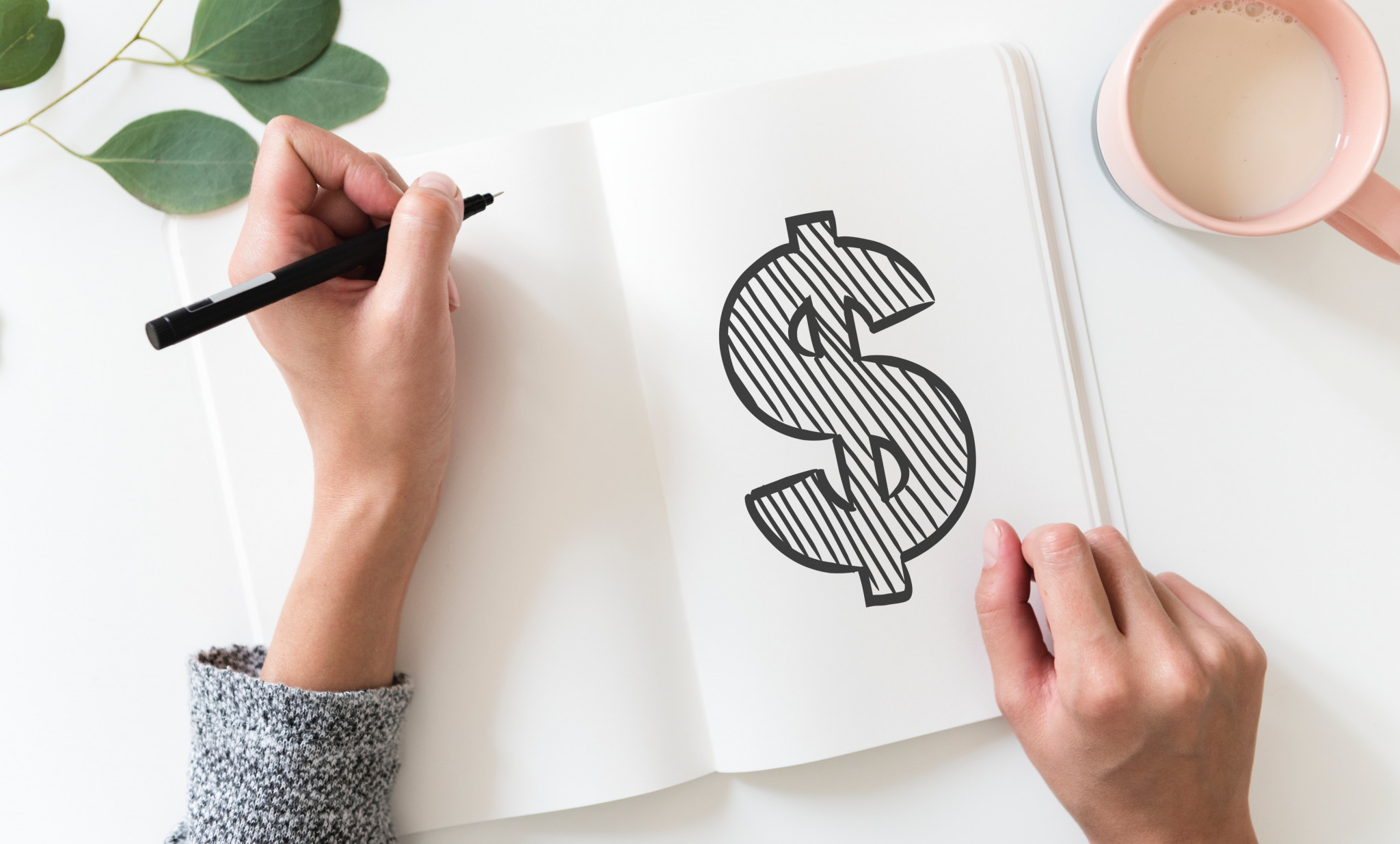10 Ways to Save Money in 2018
Okay, I thought this was worth re-reading as I just turned in my tax information to get that done and off my list. As I read it, I thought Ms. Ohikuare makes a few simple easy-to-take steps recipe for saving more in the year ahead, quite simple actually. So, I thought it was worth sharing as many of us find ourselves at this time thinking where does my money go? Follow her 10 steps and you’ll not only know where it went but what it’s going to do for you by helping you to save more. Getting your money right in a new year is a big concern for most people, it’s not too late to start now. Check it out, personal check-ins like this weeklong financial tuneup can help you assess where you are in the long term — and getting personal is key. Good luck with your savings plan and incorporating it into your schedule. Renée Greene, Co-Founder, Herself360
 Set Goals
Set Goals
Saying that you want to save more money isn't enough. (Although that would be amazing.) Coming up with a plan — even a rudimentary one — is absolutely necessary, especially if you are putting money in the financial markets.
Automate
"As a rule of thumb, you should aim to save at least 10% of your gross income each year. Whether that means 10% is going to your retirement account or an emergency fund, you should be putting funds away for future needs," says Clarke. "Setting up automatic deposits into your savings or investment fund forces you to stick to your plan as opposed to giving into small temptations here and there with your extra cash."
Think Ahead
Planning for the future doesn't have to be a worst-case scenario exercise; you should also think about how to
Maybe that's buying your mom a birthday present in two weeks, going on a vacation in six months, or becoming a homeowner in a year. "Write them down in your journal," Clarke urges. "It’s never too early to start thinking about the important events in your life, and you don’t need to wait until you have a partner to do so. By writing down what you need to save for, you’re more likely to take them seriously."
 Build Your Own Nest
Build Your Own Nest
Speaking of not waiting for a partner to get your life on track, don't do that when it comes to savings. Seriously. A recent survey from Discover revealed the sizable gap between people's expectations of when they would reach certain goals with or without a partner, and the findings were pretty sobering.
"People don’t combine finances as much as they used to," Clarke says. "Even if marriage is on your radar, establish your own saving and investment plans."
However you decide to go about doing so, figuring out how to merge your finances once you're in a long-term,
Pack Your Lunch
"Sometimes, the simplest changes you make can go the farthest," Clarke says. At the start of the year, try packing your own lunch at least three times a week to see how much you save. Keep that extra cash in a savings jar at home and direct it elsewhere.
Need suggestions for meal prep? Check out these recipes for tasty January meal options.
Track Your Expenses
You won't get a handle on how much you can save until you understand how much money you spend. Get in the habit of keeping track of all your expenses, especially small ones like coffee, snacks or drinks, Clarke advises. "These small expenses add up, and being cognizant of them will help you avoid unnecessary purchases."
If you aren't a fan of going through your statements each month, enlist the help of a savings app that will do it for you. Many personal finance apps these days are goal-oriented, and usually ask you to synch up your bank accounts, credit cards, retirements savings accounts to see what you are saving and spending. If nothing else, downloading one of these options can help give you a clearer picture of where you stand.
Think Bigger Than The Basic Savings Account
Clarke defines short-term investment goals as those that clients generally want to reach within five years. Saving some money is better than saving nothing of course, but if you want to go bigger in that five-year timeline, you will need to look beyond a standard savings accounts.
"Even the best money market accounts are only returning around 1% in annual percentage yield," she explains.
Talk To Someone
You may feel comfortable investing on your own, but if you don't, speaking to an expert may help you figure out how to maximize any investments you make.
"One of the most proactive steps you can take is to speak with a financial professional who can help you develop a savings strategy appropriate to your unique situation," says Catherine Golladay, the senior vice president for 401(k) participant services and administration at Schwab Retirement Plan Services. "The advice they offer to a single woman may differ from what they’d suggest to a married person, and it can take into account a multitude of personal data points, including your salary, age, other sources of income or savings, children, etc."
Golladay says this advice is often available as part of your 401(k) plan or financial wellness plan at work, so start there. If it’s not available through your particular employer’s plans, try talking to your HR rep. While they may not be able to give you highly specific information, you can get an idea of better questions to ask once you are ready to pay for a full-service consultation.
Switch Bank Accounts
Many people stick with the same bank accounts they had after high school, even if it no longer suits their needs as an adult. Clarke suggests researching the latest offers from banks to see what makes sense for you now.
"Many offer sign-up bonuses simply for opening an account and setting up a direct deposit," she says.
Additionally, you'll want to avoid bank accounts with monthly fees, minimum balance requirements, and charges for ATM access. Check out Value Penguin for a list of options to choose from.
Rebalance Your Investment Accounts
Investing isn't a matter of just opening an account but being mindful of what you are investing in.
Golladay says that even though markets have hit record highs in recent months and you may have seen a bump in your balance, "dramatic market movements could have also left your asset allocation out of whack."
"When certain stock sectors perform particularly well, that can leave those sectors over-weighted and others under-weighted in your 401(k)," she explains. Remember that your 401(k) is a long-term investment and you shouldn't react to every market change and period of volatility, but consider rebalancing at the beginning of the year "so that your investments are in line with your risk tolerance and desired asset allocation."
BEST WAYS TO SAVE MONEY IN 2018 - FINANCE, SAVINGS TIPS
ORIGINALLY PUBLISHED ON JANUARY 16, 2018, 5:20 PM
LIVING • NEWS • PERSONAL FINANCE • WORK & MONEY
 WRITTEN BY JUDITH OHIKUARE
WRITTEN BY JUDITH OHIKUARE
ILLUSTRATIONS BY ABBIE WINTERS.
Welcome to Refinery29! Join the discussion!
Facebook: https://www.facebook.com/johikuare
Twitter: @ohikuare @Refinery29
Web: https://www.refinery29.com/author/judith-ohikuare






